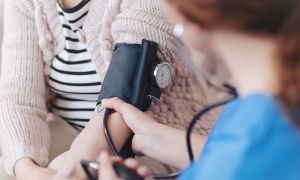Fainting is caused when the brain is starved from blood or oxygen. During exercise as much as 80% of blood is shunted away from vital organs and directed to skeletal, thus reducing blood flow to the brain. Improper breathing, such as the valsalva maneuver, while performing exercise in the lying position can decrease blood flow to the brain, then upon standing the client faints. Heat exhaustion and significant blood pressure decreases are common during exercise, which may also cause fainting.
There are additional items such as medications and cardiovascular disorders, which may also cause fainting. If you or someone you know suffers from frequent fainting, it is advised to seek medical attention prior to engaging in physical activity again. There may be a significant underlying pathology.
Continue Learning about Brain and Nervous System
Important: This content reflects information from various individuals and organizations and may offer alternative or opposing points of view. It should not be used for medical advice, diagnosis or treatment. As always, you should consult with your healthcare provider about your specific health needs.


